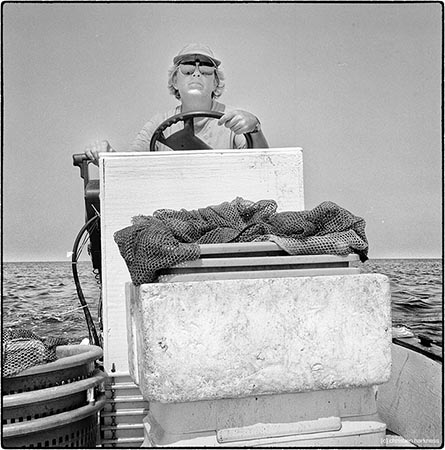

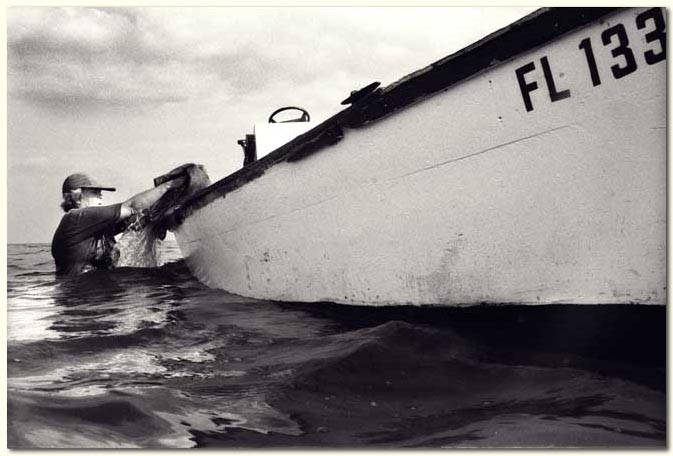
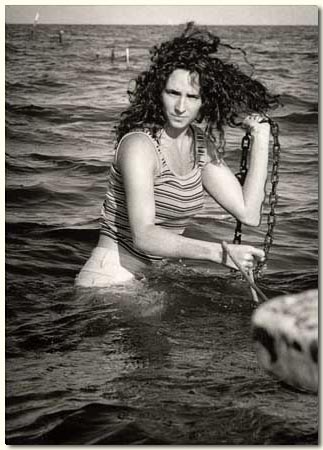
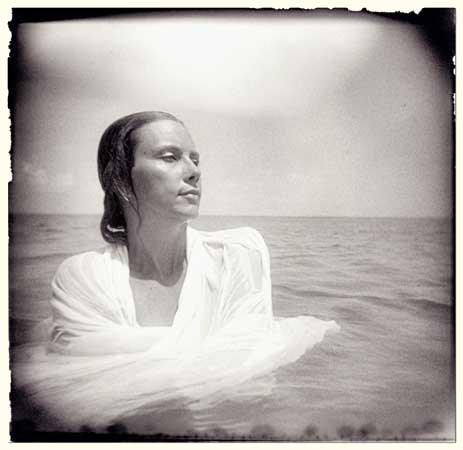
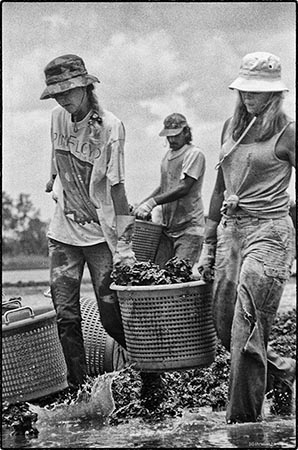
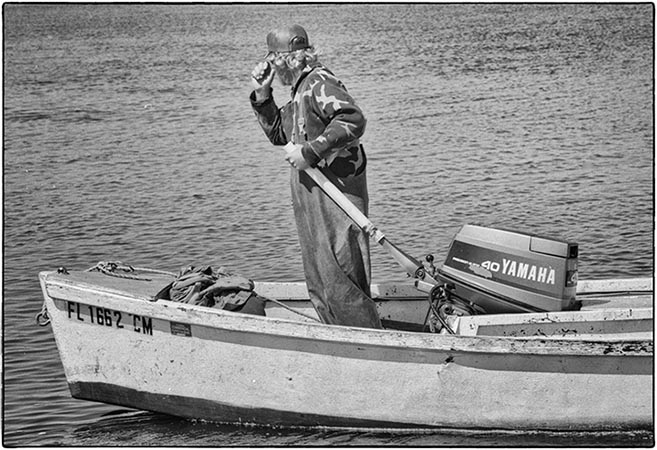
These photographs span almost thirty years, picking up around the time of the enactment, in 1995, of the Florida Net-Ban, outlawing the use gill and trammel nets.
When the net-ban became effective I had been living in Cedar Key, Florida, a small island town of about 800 inhabitants in the northern Gulf of Mexico, on Florida's west coast, for several years. For generations its residents had made their living largely from fishing, crabbing and oystering and those tourist attractions that revolve around restaurants, fishing, and the attraction of an offbeat vacation in an out of the way place.
Cedar Key was a place that had endured. It had survived storms and hard times and its inhabitants were not getting rich, but were 'getting by.' The coming of the net-ban and the end of a way of life produced severe anxiety, concern, and anger in the community. It was then that I decided to start photographing a few of the fishermen I had gotten to know. Silent and reticent towards 'outsiders' they were difficult for me to approach.
Almost coincidentally to the coming of the net-ban was the developing of aquaculture, in this case clam farming, in Cedar Key waters. Generally, the fishermen wanted nothing to do with it and were in denial about the demise of their future and ability of making a living by working independently on the water. I had a friend who was doing some small boat, commercial fishing and also became involved in clam farming. Through her, I realized that while the fishermen might be staying away from showing any interest in clam farming, several of the women from fishing families started taking an interest in the business.
Although I had spent a lot of time sailing the waters of the Cedar Keys, I hardly ever encountered them on the Gulf. These waterwomen certainly did not think of themselves as being unique, or special. Growing up in Cedar Key, they were connected to the water and making a living this way was “no big deal” to them.
I felt photographing and documenting their lives would be a 'big deal' because their way of living and working was special and unique to this small group of islands.
Clam farming as an 'industry' has matured greatly since the net-ban took effect, and it now dominates life in Cedar Key.
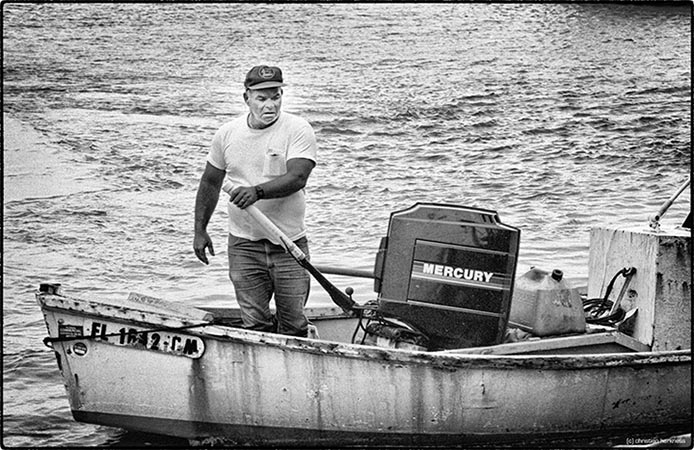
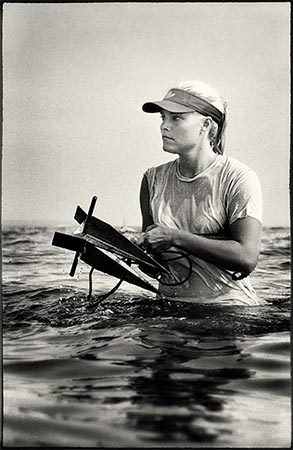
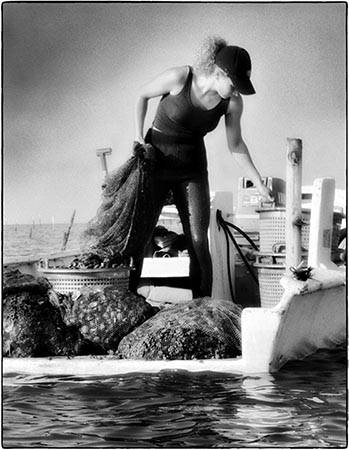
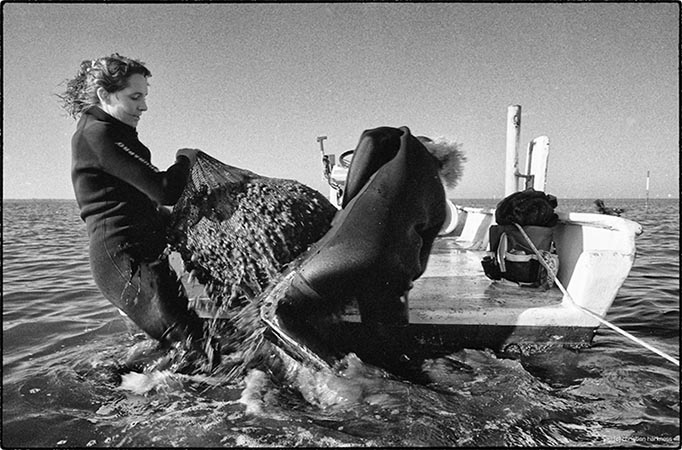
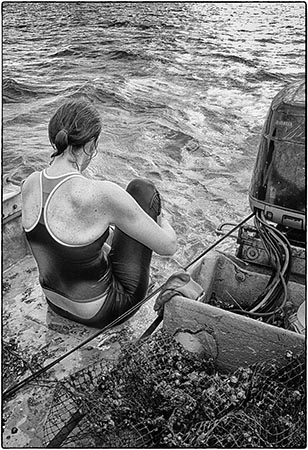
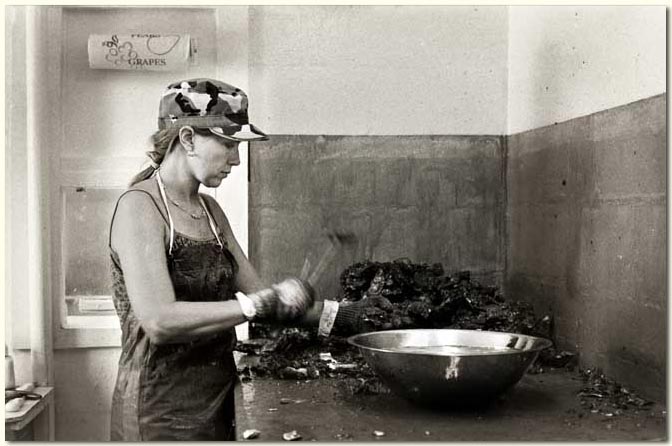
christian harkness
_________________________________________________________________________________________________________________________________________________